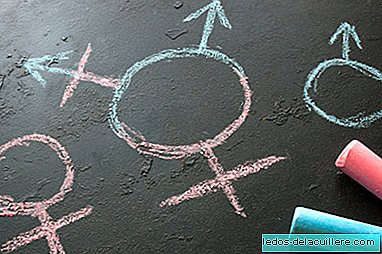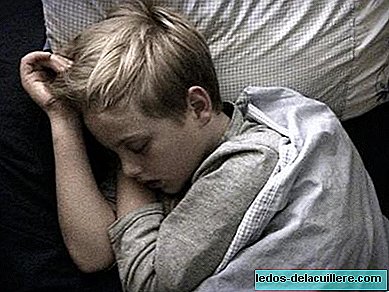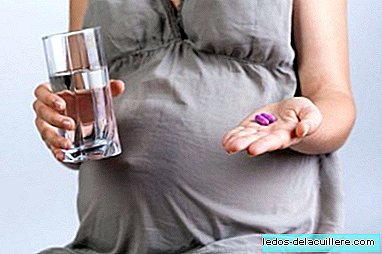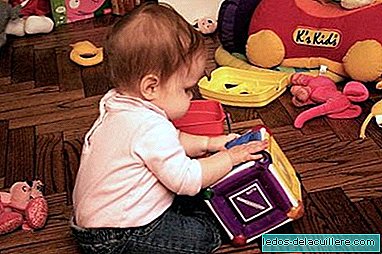
The German Government approved yesterday August 15, in the Council of Ministers, the introduction of a third gender in the civil registry.
Parents may mark 'diverse' in the gender box, when the sex of your children is undefined at the moment they are born.
With this measure, the German Government complies with the ruling issued last year by the Constitutional Court that forced the Executive to introduce a third option in its official documents, alleging that "Those people who do not consider themselves male or female would be discriminated against if the law permanently forces them to register with one of the genders".
The German Minister of Justice, Katarina Barley, admitted that the "modernization" of the civil registry occurs with "delay." In addition, his Government plans to reform its legislation so that the new laws recognize sexual diversity and different gender identities, including that of transgender and transgender people.
Let's talk about intersexuality
According to Zanzu, an initiative of Sensoa (Center for Experience for Sexual Health in Flanders) and Bundeszentrale für gesundheitliche Aufklärung, (Federal Center for Health Education in Germany):
Being intersex, what was previously known as hermaphrodite, is not a disease or a disorder, but a reflection of the diversity of people.It is said that a person is intersex when their physical characteristics are not all clearly masculine or clearly feminine. Male and female physical characteristics are not only visible sexual attributes, such as genitals. They also include internal features such as genetic material and hormones. In some people, intersexuality is observed as soon as it is born; in others it is detected during childhood or upon reaching puberty.
The Greek term 'hermaphrodite' continues to be associated with all conditions of intersexuality, and the idea persists that they are people with both male and female genitalia. But it's not like that. There are more than 40 causes for intersex origin and every year a new one appears.
In 2013 Germany became the first European country that allowed babies with characteristics of both sexes to be registered without a defined gender, giving the option to leave the gender box blank.
At the end of 2017, a sentence of the German Constitutional Court urged the Administration to allow the registration of persons with a third sex (either as 'intersexual' or 'diverse') in addition to 'feminine' and 'masculine' '.
The ruling argues, based on the constitutional right to personality protection, that "People who are neither men nor women have the right to register their gender identity in a 'positive' way in the birth record."
The ruling responded to the complaint filed by an intersexual person, who demanded his fundamental right to be registered as 'intersexual' or 'diverse'. She was registered in the civil registry as a woman, but an analysis of her chromosomes showed that she could not be qualified as a man or as a woman.
Now, this demand will come true before the end of the year by having the 'diverse' box. Once again, Germany takes advantage of Spain in sexual freedoms. But it is not the only country that surpasses us.
Intersexuality in Spain
The United States, Canada and Sweden are pioneers in defending the right of parents not to have to raise children in one sex or another, and let them be the ones they choose when they are prepared with what sex they feel most identified.
According to the United Nations Intersex fact sheet, between 0.05 and 1.7 percent of people are born each year in the world with intersex features, a figure higher than the number of redheads, for example.
Here in Spain, the numbers are not clear. The jurist Daniel J. García, author of the book 'On the right of the hermaphrodites' declared in the newspaper El País that "We can make estimates by moving American statistics, although it is not quite accurate. We would be talking about 250 intersex people are born every year in Spain ".
In our country, this group is under the umbrella of the acronym LGTBI and its situation is still quite invisible, according to El Diario. The regulations of the Community of Madrid of identity and expression of gender and social equality, as well as of the Balearic Islands against LGTBIfobia, include the two main demands of intersex international organizations:
- the depathologization
- and the ban on genital surgery in babies, for reasons that are not related to health.
"Currently, these regions are at the same level as Malta and Chile, the only countries in the world that have banned genital mutilation of intersex people ", explains lawyer J. J. Garcia in the newspaper on-line.
Another demand of the parents is that of not having to enroll their children with male and female sex, although they were clearly born with one of them. Lola Rovati was already talking about the neutral gender in "Neither boy nor girl".
Anyway, it seems that there is still a long way to go in terms of sex discrimination, judging by international demands. We will continue pending.
Via Europa Press
In Babies and More Controversial position of a conservative association of American pediatricians: "gender ideology harms children", neither boy nor girl: this is how some parents raise their children with a gender neutral












